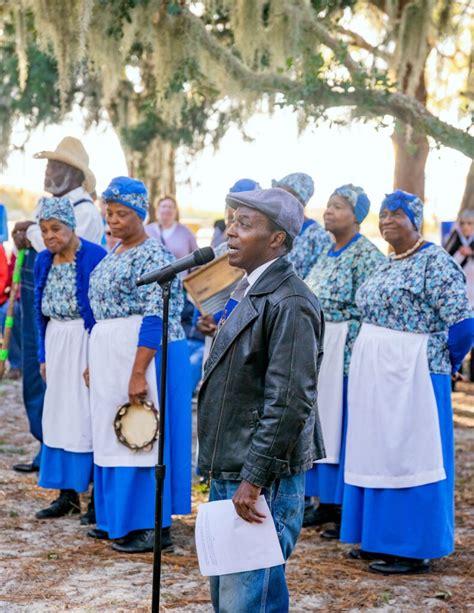Understanding the Language and Traditions of Gullah Geechee
The Gullah Geechee people, a vibrant Afro-diasporic community, boast a rich cultural heritage deeply rooted in the Sea Islands of the Southeastern United States. Understanding their language and traditions offers a captivating glimpse into the resilience and ingenuity of enslaved Africans and their descendants. This article delves into the unique linguistic and cultural tapestry that defines the Gullah Geechee experience.
What is Gullah Geechee Culture?
Gullah Geechee culture encompasses the distinct traditions, language, and social structures developed by enslaved Africans and their descendants along the coast of South Carolina, Georgia, and parts of Florida and North Carolina. Forced to work on rice plantations and isolated from mainstream society, they created a unique blend of African and European influences that persists to this day. This blend is evident in their language, music, food, art, storytelling, and spiritual practices. Their resilience in preserving their heritage despite centuries of oppression stands as a testament to their strength and cultural pride.
What Language Do the Gullah Geechee People Speak?
The Gullah Geechee language, also known as Gullah, is a creole language with a significant foundation in West African languages. It's not a dialect of English; rather, it's a distinct language with its own unique grammar, vocabulary, and phonology. The precise origins of specific words and grammatical structures are often debated, reflecting the diversity of West African languages that contributed to its formation. Influences from English, French, Spanish, and other European languages are also present, primarily in vocabulary. However, the core grammatical structure and many vocabulary words remain deeply rooted in African linguistic heritage.
How is Gullah Different from Other Creole Languages?
While Gullah shares characteristics with other creole languages, it possesses distinct features. The significant West African influence in its grammar is a key differentiator. Unlike some creoles where the lexicon is overwhelmingly European, Gullah retains a large portion of its vocabulary with West African roots. Furthermore, the specific blend of African languages that form the basis of Gullah is unique to its geographic location and the historical experiences of the enslaved people who developed it. Researchers continue to unravel the complex linguistic tapestry of Gullah, continually uncovering new insights into its origins and evolution.
What are Some Key Gullah Geechee Traditions?
The Gullah Geechee people have maintained a rich array of traditions despite facing significant historical challenges. These traditions are vital aspects of their cultural identity and continue to be celebrated and passed down through generations.
Music and Dance: Gullah Geechee music is characterized by soulful rhythms and call-and-response patterns reflecting their African heritage. Ring shouts, spirituals, and work songs are examples of traditional musical forms. Dance often accompanies the music, with movements and rhythms mirroring the traditions brought from Africa.
Food: Gullah Geechee cuisine is known for its unique flavors and ingredients. Dishes like red rice, okra soup, shrimp and grits, and benne (sesame) seed cakes showcase the resourceful use of local ingredients and the blending of African and European culinary techniques.
Storytelling and Folklore: Storytelling plays a crucial role in transmitting history, values, and cultural knowledge. Many Gullah Geechee tales feature talking animals, trickster figures, and spiritual elements, reflecting their African oral traditions. These stories serve as important vehicles for preserving and sharing cultural heritage.
Spiritual Practices: Spiritual practices often combine elements of African religions with Christianity, creating a syncretic spiritual system unique to the Gullah Geechee community. This blend reflects their adaptation and resilience in the face of religious suppression.
Why is Preserving Gullah Geechee Culture Important?
Preserving Gullah Geechee culture is crucial for several reasons:
- Historical Significance: It offers a vital understanding of the history of enslaved Africans and their remarkable resilience.
- Linguistic Diversity: Protecting the Gullah language safeguards a unique and valuable aspect of linguistic diversity.
- Cultural Enrichment: The rich traditions of the Gullah Geechee people enrich the cultural landscape of the United States and beyond.
- Community Identity: Preserving their culture strengthens the sense of community and identity among Gullah Geechee people.
Understanding the Gullah Geechee language and traditions provides a profound insight into the strength, creativity, and cultural richness of a unique and significant community. Their legacy serves as an inspiration and a reminder of the ongoing importance of cultural preservation and the value of diverse voices in society.

